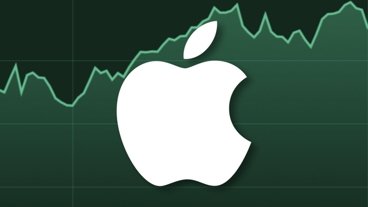The sheer amount of money spent by Apple on research — as well as maintaining chief executive Steve Jobs' private jet — suggests that the company is working feverishly on international iPhone releases and new products, according to a new research note from Morgan Stanley.
The spikes are not just isolated incidents, Huberty suggests. Research has been up consistently by roughly 32 percent for the past three quarters, while the $550,000 spent on Jobs' air travel is three times as much as the average amount spent over the past year and a half.
As the company's chief executive is "integral" to any negotiations with foreign cellular service providers for iPhone contracts, the extra travel is likely to discuss and finalize the release of the iPhone in new countries, according to the note. The analyst cites "industry discussions" which point to a potential iPhone release in Canada as well as expected launches in Asia and additional European countries.
"The last spike in [Steve Jobs'] plane expense was in the March 2007 quarter, ahead of the iPhone launch," Huberty says.
Regarding the stepped up research efforts, the Morgan Stanley analyst suggests that it may not be just the release of upgraded iPhone and iPod touch models in 2008 that will require the added expenses. The Cupertino-based electronics firm may be spending more of its efforts on software for its computers and handheld products, such as social networking components or more business-minded features to branch out from Apple's familiar home user segment.
While welcome, this growth may be needed to sustain Apple's momentum. The company may encounter difficulty justifying its explosive growth if the rate of new developments slows down in the near future, according to the note, and may be hindered if either the manufacturing chain or offerings from rivals undermine the company's ability to introduce new products on time.
However, Apple is now in the unusual position of seeing its foreign markets outpace those at home: the company's latest quarterly results saw profit margins increase outside of the country. The shift makes sales in some once-unfriendly markets suddenly appear more lucrative than domestic business, as a poor US dollar has increased margins in other nations.
"We’ve always thought of the US market as [Apple's] most profitable segment," Huberty told investors. "Given improved [product] demand and mix, Europe and Japan are now as, or more, profitable than Apple’s US and retail segments."
 Katie Marsal
Katie Marsal






-m.jpg)






 Malcolm Owen
Malcolm Owen

 Amber Neely
Amber Neely
 Christine McKee
Christine McKee


 William Gallagher
William Gallagher
 Chip Loder
Chip Loder
-m.jpg)






16 Comments
Canada, eh? We'll see... I'm buying an iPhone in May- one way or the other!
Too late Appleinsider! I already reported about the article in the future hardware section's "So....what do we get next tuesday" thread. So there!
It is nice to see some actual analysis of what is happening at Apple based on trends in how they behave. There are a lot of "professionals" following Apple results but they only parrot one anothers basic analysis of the few numbers Apple feeds their way.
The problem I see with foreign iPhone deals is the governments.
In Europe/Australia the government competition watchdog will disallow exclusive contracts, and in Asia the governments do not respect IP and will let local companies sell unlocked iPhones en masse.
The problem I see with foreign iPhone deals is the governments.
In Europe/Australia the government competition watchdog will disallow exclusive contracts, and in Asia the governments do not respect IP and will let local companies sell unlocked iPhones en masse.
Well that is NOt a problem here in Canada. March 18th anyone??